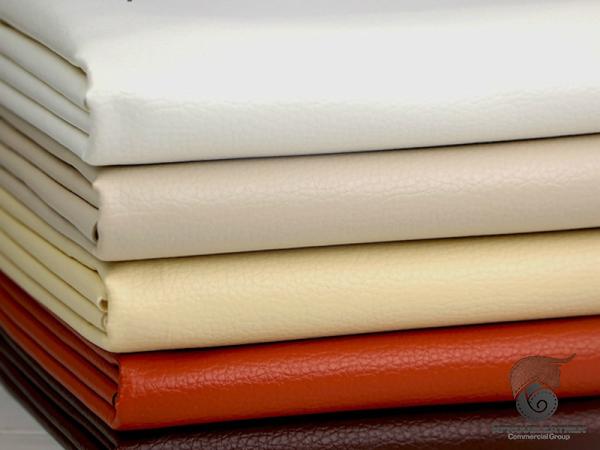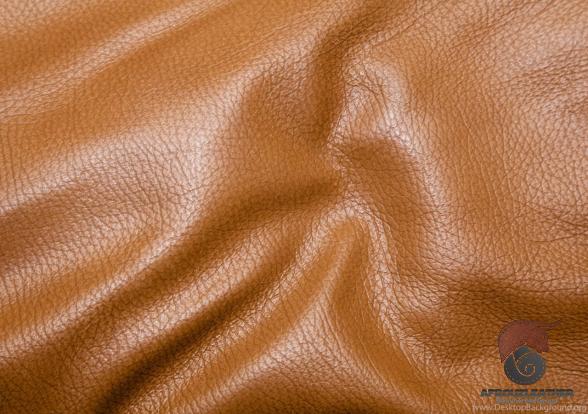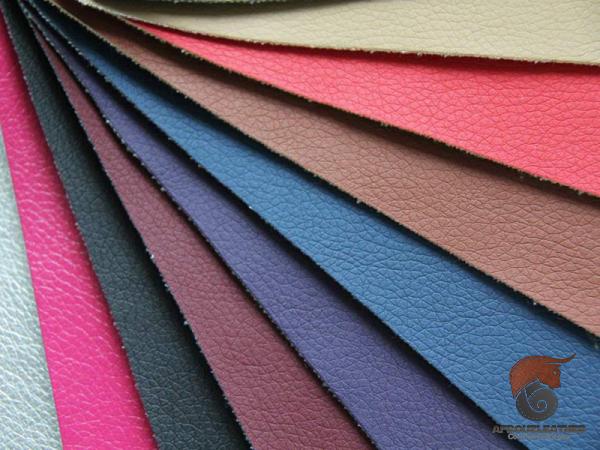Leather has been used for its durability, comfort, and aesthetic appeal for centuries. Among the various types of leather, sheep leather holds a distinct position due to its unique qualities and versatile applications. This summary aims to explore the characteristics, uses, and sustainable benefits of sheep leather, shedding light on its relevance in various industries. I. Characteristics of Sheep Leather: 1. Supple and Soft Texture: Sheep leather is renowned for its softness and pliability, making it highly suitable for creating luxurious and comfortable products. 2. Lightweight and Breathable: Due to its thin grain structure, sheep leather is lightweight and allows for increased airflow, providing exceptional breathability and comfort. 3. Natural Elasticity: Sheep leather exhibits natural elasticity, allowing it to stretch and conform to the shape of the wearer, providing a snug fit and optimal comfort.
leather
 4. Attractive Natural Grain: Sheep leather boasts a unique and appealing natural grain pattern, enhancing its aesthetic appeal for use in various products. II. Applications of Sheep Leather: 1. Fashion and Apparel Industry: One of the most prominent uses of sheep leather is in the fashion and apparel industry. It is commonly used to create high-quality garments, footwear, gloves, and accessories due to its softness, durability, and luxurious feel. 2. Upholstery and Furniture: Sheep leather is also extensively used in upholstery and furniture manufacturing. Its supple texture enhances the comfort and luxurious feel of furniture items such as sofas, chairs, and cushions. 3. Automotive Interiors: Sheep leather is a popular choice for automotive upholstery due to its durability, softness, and aesthetic appeal. It is commonly used in creating luxurious and comfortable car interiors, providing a touch of elegance and comfort.
4. Attractive Natural Grain: Sheep leather boasts a unique and appealing natural grain pattern, enhancing its aesthetic appeal for use in various products. II. Applications of Sheep Leather: 1. Fashion and Apparel Industry: One of the most prominent uses of sheep leather is in the fashion and apparel industry. It is commonly used to create high-quality garments, footwear, gloves, and accessories due to its softness, durability, and luxurious feel. 2. Upholstery and Furniture: Sheep leather is also extensively used in upholstery and furniture manufacturing. Its supple texture enhances the comfort and luxurious feel of furniture items such as sofas, chairs, and cushions. 3. Automotive Interiors: Sheep leather is a popular choice for automotive upholstery due to its durability, softness, and aesthetic appeal. It is commonly used in creating luxurious and comfortable car interiors, providing a touch of elegance and comfort.
Specifications of leather
 4. Handcrafted Goods: Sheep leather is widely used by artisans and craftsmen to create handcrafted goods like bags, wallets, belts, and small accessories. Its softness, pliability, and attractive grain pattern make it ideal for intricate designs and detailing. 5. Sporting Goods: Sheep leather is also employed in the production of sporting goods such as gloves, balls, and footwear. Its light weight, natural elasticity, and breathability make it suitable for athletic activities, providing comfort and durability. III. Sustainability Aspects of Sheep Leather: 1. Biodegradability: Unlike synthetic alternatives, sheep leather is a natural and biodegradable material. When disposed of, it decomposes naturally without harming the environment. 2. Byproduct of the Meat Industry: Sheep leather is mainly obtained as a byproduct of the meat industry, where sheep are primarily raised for their meat. Utilizing sheep hides helps reduce waste and make efficient use of available resources. 3. Durability and Longevity: Sheep leather products are known for their durability and longevity. Investing in high-quality sheep leather items promotes a sustainable and environmentally friendly consumption approach, as they tend to last longer, reducing the need for frequent replacements. 4. Local Sourcing and Artisanal Practices: The production of sheep leather often involves local sourcing and artisanal practices. This contributes to the local economy, supports craftsmanship, and preserves cultural heritage.
4. Handcrafted Goods: Sheep leather is widely used by artisans and craftsmen to create handcrafted goods like bags, wallets, belts, and small accessories. Its softness, pliability, and attractive grain pattern make it ideal for intricate designs and detailing. 5. Sporting Goods: Sheep leather is also employed in the production of sporting goods such as gloves, balls, and footwear. Its light weight, natural elasticity, and breathability make it suitable for athletic activities, providing comfort and durability. III. Sustainability Aspects of Sheep Leather: 1. Biodegradability: Unlike synthetic alternatives, sheep leather is a natural and biodegradable material. When disposed of, it decomposes naturally without harming the environment. 2. Byproduct of the Meat Industry: Sheep leather is mainly obtained as a byproduct of the meat industry, where sheep are primarily raised for their meat. Utilizing sheep hides helps reduce waste and make efficient use of available resources. 3. Durability and Longevity: Sheep leather products are known for their durability and longevity. Investing in high-quality sheep leather items promotes a sustainable and environmentally friendly consumption approach, as they tend to last longer, reducing the need for frequent replacements. 4. Local Sourcing and Artisanal Practices: The production of sheep leather often involves local sourcing and artisanal practices. This contributes to the local economy, supports craftsmanship, and preserves cultural heritage.
buy leather
 5. Minimal Chemical Usage: Compared to synthetic materials, sheep leather has minimal chemical treatment requirements during processing. This reduces the environmental impact associated with the use of harsh chemicals and supports sustainable production practices. Conclusion: Sheep leather, with its unique characteristics and diverse range of applications, continues to be a preferred choice in numerous industries. Its supple texture, lightweight nature, elasticity, and attractive grain pattern make it highly desirable for fashion, upholstery, automotive, handcrafted goods, and sporting goods. Additionally, sheep leather offers several sustainable benefits, including biodegradability, efficient utilization of byproducts, durability, and minimal chemical usage. As more industries embrace sustainable practices and consumers seek eco-friendly alternatives, sheep leather stands out as a promising and versatile material that combines functionality, style, and environmental consciousness.
5. Minimal Chemical Usage: Compared to synthetic materials, sheep leather has minimal chemical treatment requirements during processing. This reduces the environmental impact associated with the use of harsh chemicals and supports sustainable production practices. Conclusion: Sheep leather, with its unique characteristics and diverse range of applications, continues to be a preferred choice in numerous industries. Its supple texture, lightweight nature, elasticity, and attractive grain pattern make it highly desirable for fashion, upholstery, automotive, handcrafted goods, and sporting goods. Additionally, sheep leather offers several sustainable benefits, including biodegradability, efficient utilization of byproducts, durability, and minimal chemical usage. As more industries embrace sustainable practices and consumers seek eco-friendly alternatives, sheep leather stands out as a promising and versatile material that combines functionality, style, and environmental consciousness.

Your comment submitted.